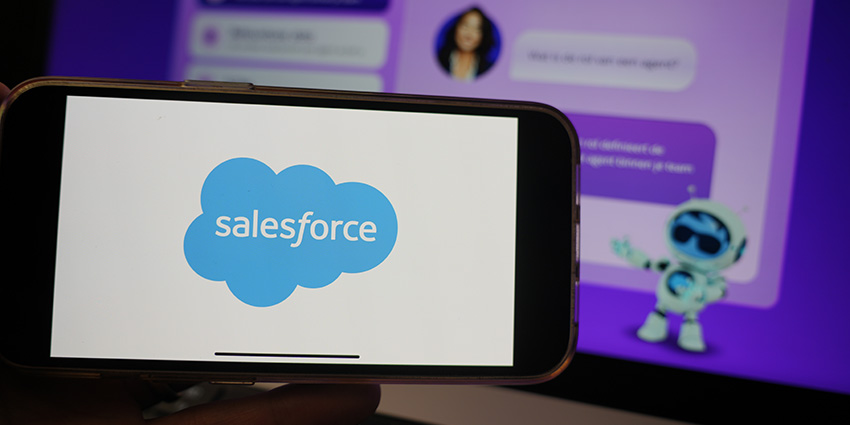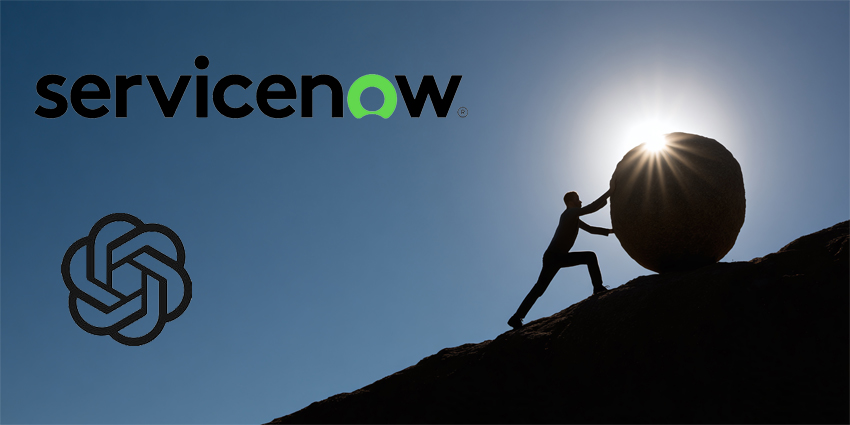The top line of 1,000 redundancies doesn’t leave for good reading.
Interestingly, though, Salesforce is actively hiring around 2,000 people to sell its Agentforce product.
While an odd move, the decision suggests that Salesforce might reorient its business more towards data and AI rather than its traditional CRM focus.
That’s not much of a stretch, given recent industry rumors that Salesforce has even considered renaming its entire business “Agentforce”.
However, let’s take a close look at what Salesforce’s recent job cuts suggest about the company’s future.
Salesforce Needs Fresh Expertise to Sell to New Buyers
Speaking on CX Today’s Salesforce Update in February, Liz Miller, VP & Principal Analyst at Constellation Research, explained that the hire-and-fire moves seem focused on sales roles.
Why? Perhaps because – by focusing on AI and customer data platforms – Salesforce is looking to lure in a new buyer. Indeed, they’re now selling to CIOs, not function leaders.
As such, sales teams require not only new expertise, but potentially different skill-set.
Miller added: “Agentforce does take a very different type of technical knowledge with their sellers.
It’s not just about implementing a cloud solution; Agentforce is about “connecting the dots” across the Salesforce ecosystem and the broader customer experience landscape.
As such, the layoffs are likely about eliminating some roles while introducing others that require a deeper understanding of automation and AI.
Miller also noticed that Salesforce was “very specific” in saying those affected could apply for other roles, with internal candidates getting preference.
This suggests they’re trying to retain talent while streamlining roles to fit this new direction.
The Shift Towards a Platform-Based Selling Approach May Have Contributed
As noted, Salesforce has typically marketed to customer service, sales, and marketing directors, selling specific products.
Now, it’s not only shifting to all-encompassing AI and data solutions but towards a more platform- or suite-based selling approach.
This naturally leads to some roles disappearing as new, more integrated roles appear.
Michael Fauscette, Founder, CEO & Chief Analyst at Arion Research, explained that this trend isn’t limited to Salesforce or even sales roles – but a broader trend across multiple industries.
“A lot of tasks and even whole jobs are evolving,” he noted. “Most companies don’t yet have a solid plan for retraining and reskilling their workforce for these new roles.”
Ultimately, retraining existing employees who already have institutional knowledge is likely more cost-effective than hiring new ones.
Salesforce’s traditional CRM rival SAP has made a go of this, although its reskilling approach has drawn both advocacy and criticism.
Nevertheless, there’s a “bigger conversation” to be had about how organizations plan for this kind of transition, creating paths for employees whose roles might be disappearing.
Miller picked up on this notion: “Companies that have deep roots in traditional selling approaches — like Oracle and SAP — have had to completely re-envision tools and solutions so that they’re built on this cloud mechanism.”
Despite its image as the “new kid”, Salesforce faces similar growing pains as it transitions from traditional CRM to a broader AI and data-focused platform. Miller summarized:
The irony here is that while AI is being blamed for eliminating jobs, we’re seeing a surge in hiring for roles to sell AI-based solutions. It is how people still want to buy from people—at least for now.
Other Salesforce News
Last week, Salesforce presented the next generation of Agentforce: Agentforce 2dx.
The launch featured new APIs and actions to support developers in utilizing AI agents to automate much more of the enterprise beyond Salesforce’s CRM ecosystem.
Additionally, Klarna CEO Sebastian Siemiatkowski set the record straight on reports that his company ditched Salesforce and replaced it with AI.
In a post on X, Siemiatkowski revealed that the ordeal left him feeling “tremendously embarrassed.”






